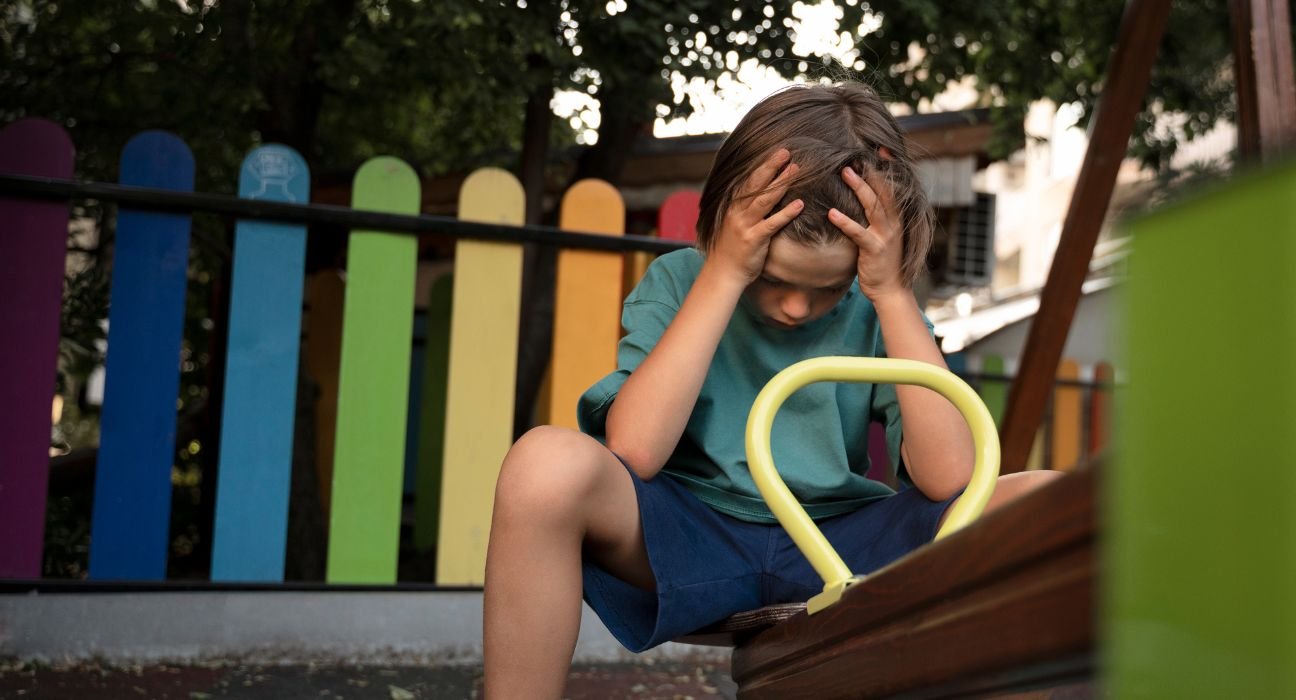Childhood is a crucial time when emotional, psychological, and social well-being is shaped for the future. Many challenges can affect a child’s development, and one of the most harmful forms of abuse is neglect. Unlike physical abuse, which often leaves visible marks, neglect is harder to spot but can be just as damaging to a child’s mind. This form of mistreatment can have lasting effects on mental health into adulthood, influencing how people think and feel. It also has broader consequences for society, highlighting the importance of addressing childhood neglect.
Defining Childhood Neglect
Neglect is described as the failure to supply a child’s basic needs, which tend to be fundamental, such as emotional support, education, and physical needs, including food and shelter. Neglect, as noted by the World Health Organization, is a form of maltreatment that includes both physical and emotional aspects. Less noticeable, emotional neglect can have profound psychological effects. Children deprived of emotional bonding may struggle to form healthy relationships and experience a breakdown in their sense of emotional security.
Types of Neglect:
- Physical Neglect: Failure to provide even the most elementary physical needs like food, clothing, shelter, and medicine.
- Emotional Neglect: Lack of emotional support or love resulting in feelings of worthlessness and abandonment.
- Educational Neglect: Failure to ensure that a child has a right to education; usually results in underachievement at school and poor future life prospects for the child.
Psychological Mechanisms
Attachment Theory
One of the foundational theories that can be considered when thinking about the relationship of childhood experience to adult mental health is that of Attachment Theory, by John Bowlby and Mary Ainsworth. This theory describes how children attach themselves to caregivers in a manner that should determine the child’s emotional and social development. Secure attachments provide resilience and healthy means of coping, while insecure or disorganized attachments-that often come from neglect rather than abuse—have been associated with numerous psychological problems in adulthood.
Isolation and neglect can lead to the formation of avoidant or anxious attachments in children, as they cannot build healthy and harmonious relationships. In so doing, they may be predisposed to having other mental health disorders such as anxiety disorders, depression, and personality disorders because of failure to properly regulate intimacy, trust, and their emotional lives.
Neurobiological Effect
Studies have shown that childhood neglect does affect the development of the brain, specifically in those areas dealing with emotions, impulsiveness, and stress reactions. Chronic stress caused by neglect over activates the hypothalamic-pituitary-adrenal axis in the body, releasing higher amounts of cortisol. High amounts of cortisol produce disorganized functions of the brain, hence resulting in psychological disorders such as PTSD and major depressive disorder.
Cognitive and Affective Effects
Neglect cases can lead to the development of some dysfunctional thinking patterns and emotional reactions in children. Such children are likely to internalize feelings of inadequacy and have low self-esteem about poor self-worth. Such cognitive distortion usually manifests as negative self-talk and ineffectual ways of dealing with stressors. Children who experience emotional neglect may also struggle with managing their emotions, never learning how to cope during easier, more stable times. This can lead to long-term difficulties in emotional regulation.
Once they reach adulthood, they will have a hard time controlling their emotions and will resort to impulsive behaviours or substance abuse to deal with their emotions, and some may end up engaging in self-harm. This lack of healthy processing of emotions puts them in a vicious cycle of neglect and abuse, which may prove quite difficult to break away from.
Long-Term Mental Health Effects
The consequences of childhood neglect can manifest in any mental health disorder when a person enters adulthood. The most often occurring are:
Anxiety Disorders
Those who were neglected as children might experience generalized anxiety disorder, social anxiety, or panic disorder. The absence of emotional support when one is young causes a greater reaction to the onset of stressful situations and hence an overwhelming fear of being abandoned, leading to chronic anxiety.
Depression
It is widely documented that childhood neglect contributes to depression development. Often, feelings of worthlessness and hopelessness tend to stay over to adulthood in the form of major depressive disorder among most neglected persons. The lack of positive reinforcement and validation during their formative years can lead to persistent feelings of sadness or despair.
Personality Disorders
Several studies suggest that individuals who have been neglected in childhood have a much higher rate of personality disorders. One example is borderline personality disorder, which is characterized by an overwhelming number of symptoms, from emotional instability to failure to build a sense of relationship and extreme fears of abandonment classic signs of neglect.
Substance Abuse
As such, many adults who experienced childhood neglect may turn to substances to self-medicate for emotional pain and distress. Substance use may superficially address feelings of worthlessness or anxiety but generally leads to other psychological and social complications that multiply the negative effects of early neglect.
Broader Implications
The implications of childhood neglect, however, touch directly beyond one’s mental health situation in households, the community, and society at large. A neglected individual is more likely to face challenges in both personal and professional relationships and may even perpetuate the cycle of neglect within their own family. This intergenerational transmission of trauma highlights the importance of treating childhood neglect, not just for individual recovery but for the well-being of future generations as well.
Economic Costs
Neglected childhood mental health conditions not diagnosed or treated have large societal costs. Expenditure for healthcare, loss of productivity, and justice system involvement are considered to be financial costs related to neglect. These costs could be mitigated through early intervention programs and investment in mental health services and healthier communities.
Why Early Intervention?
Breaking the cycle of trauma caused by childhood neglect is crucial. Early recognition, parenting education, mental health support, and early interventions can greatly improve outcomes for at-risk children. A stable, nurturing environment helps build resilience and counteracts the effects of neglect. Childhood neglect has serious mental health impacts, making early intervention essential. Society must prioritize giving every child the emotional and physical support needed for healthy development, ensuring future generations can break free from the cycle of neglect.
References +
- Lippard, E. T., & Nemeroff, C. B. (2020). The devastating clinical consequences of child abuse and neglect: increased disease vulnerability and poor treatment response in mood disorders. American Journal of Psychiatry, 177(1), 20–36. https://doi.org/10.1176/appi.ajp.2019.19010020
- The impact of childhood abuse and neglect on adult mental health: a prospective study. (2001, June 1). PubMed. https://pubmed.ncbi.nlm.nih.gov/11467252/
- Gould, W. R. (2023, August 18). How childhood emotional neglect can show up in our adult life. Verywell Mind. https://www.verywellmind.com/childhood-emotional-neglect-in-adulthood-7568040













Leave feedback about this